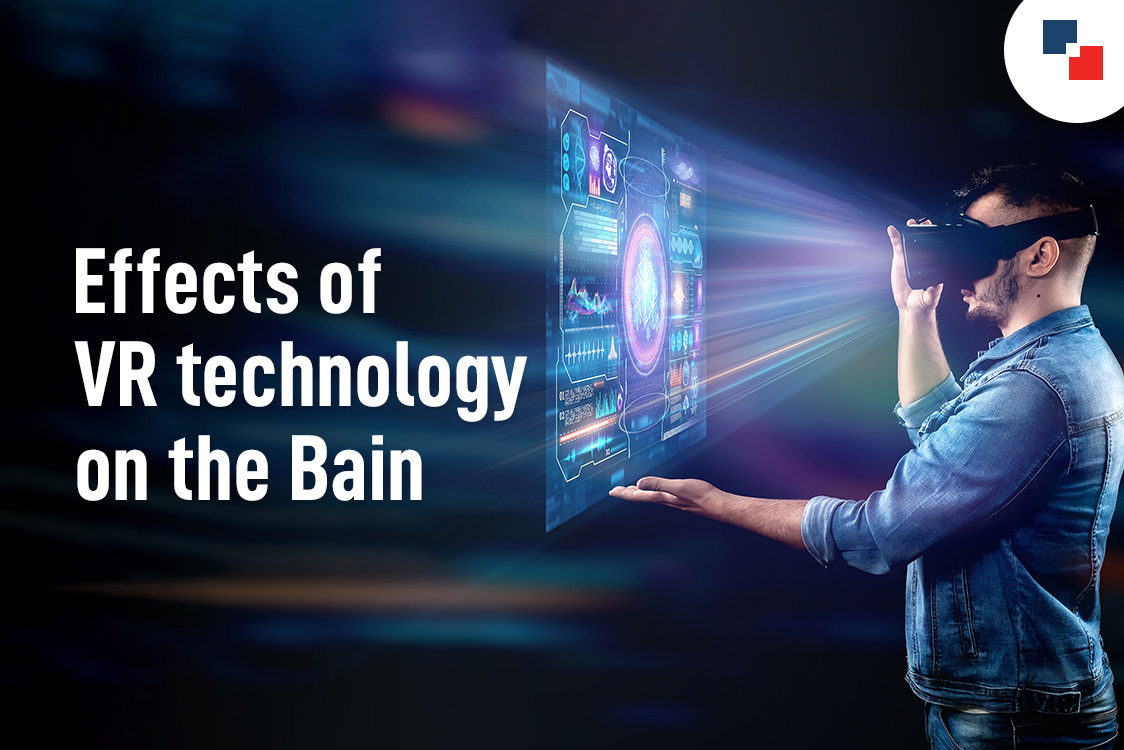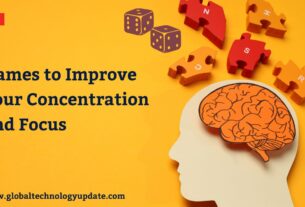In the last 5 years, the virtual reality (VR) technology growth graph has continuously increased. In this article, we are discussing some effects of VR technology on the Brain. Let’s Start…!
Virtual Reality word comes from the definitions for both ‘Virtual’ and ‘Reality’. The term means Near and Conceptually which leads to an experience that is near-reality through the use of technology.
Virtual reality (VR) in other terms, computer-generated simulation during which an individual can interact within a man-made 3-dimensional environment using electronic devices, like goggles with a screen or gloves fitted with sensors.
It works by sending information to varied senses, like sight and hearing, that fool our brains into experiencing something virtual.
VR allows us to immerse ourselves in video games as if we were one of the characters, determine the way to perform operations, or improve the quality of sports training to maximize performance.
Virtual reality can lead to exciting discoveries in these areas which impact our day-to-day lives. Virtual reality is the answer wherever it is too dangerous, expensive, or impractical to do something in reality.
Use Cases of Virtual Reality
VR may be a simulated environment that’s developed by computer software. It creates an amazing experience that appears to be real.
It offers a sensory experience – including sight, sound – and in some cases, touch – that permits users to interact with the synthetic environment that the technology presents much the same as they might if they were experiencing the environment in the real world.
VR is utilized in countless sectors, mainly defined as key areas where this technology is flourishing. These use cases include:
Gaming: VR has had a huge impact on the gaming industry. In the 21st century, the VR technology that’s utilized in video gaming is lightweight, easy to use, easy to access, and creates a real-life-like experience. Thanks to innovations in VR technology, gamers can sit within the cockpits of fighter jets or be in the neighborhood of Star Trek’s Bridge Crew.
Healthcare: Virtual reality has a major impact on the healthcare market. VR is employed to treat Alzheimer’s and dementia patients and even works to rehabilitate individuals who have suffered from a stroke and other traumatic brain injuries.
Manufacturing: The manufacturing industry is taking advantage of the advantages that VR provides. The ability to develop virtual prototypes has had a serious positive impact on the manufacturing industry.
Training and Education: The world will be impacted foremost by computer games, and therefore the impact is already being experienced by the Training and Education sector. The technology brings lessons to life, providing students with the chance to accumulate “hands-on” information that they’ll otherwise never be ready to experience.
Effects of Virtual Reality
VR could also be a developing technology with different applications in various areas. However modern research shows that VR affects the brain in a specific way, connected with human navigation and memory.
The researchers determined that the brain cells work because of the positioning system, forming the mental map of the environment and surrounding info.
Virtual Reality may create only an artificial environment. In this virtual world, the brains don’t create a mental map of the environments other than real ones.
What Does VR Do to the Brain?
VR has the power to rewire the brain and enhance neural connections that are needed for learning and memory. The brain is seeing and doing exactly what’s required – it’s not filling in the gaps.
VR headers are designed to immerse users in the virtual simulation. Their sight, hearing, smell, and touch are absent from the important world thus the brain thinks the virtual world is real.
Virtual Reality could also be an entertaining practice that will bring joy and immersion to the unreal world and high health problems, mental disorders, and damage.
There are some health risks that computer games cause, which cause negative effects and consequences.
The first impact focuses on the fact computer games confuse the brain. It means the visual organs (eyes) see one object or one surrounding area, but brain cells perceive and react differently.
This results in the confusion of consciousness and therefore the brain, generally. It may continue for some hours.
Effect of Brain after VR
- Headache
- Nausea
- Discomfort
- Depression
- Drowsiness
VR sickness is a standard brain symptom for any user. It happens when humans face Virtual Reality and get feelings similar to motion sickness. The common symptoms are
The eyes and vestibular system are responsible for the info, orientation, and movement transition to the brain. The function of the vestibular apparatus is analogous to the gyroscope for human fitness.
After computer games, sadness happens when the user experiences a skill or activity and performs it perfectly, but when returning to reality they receive a posh of emotions including sadness, depression, confusion, and anxiety.
Everything around the client is a small amount colorful and not ideal. In this case, it surely results in a private crisis.
One may notice that VR technology makes people sick in unpredictable ways. It is so hard to spot the explanations for the negative computer game brain impact. That’s why the usage of VR should be limited and controlled.
The hi-tech remains developing with many inventions to implement. However, the further the progress goes, the harder the issues appear.
Although VR may be a useful gizmo, it’s far from perfect, and it affects the way our brain acts. We should not readily accept conclusions from VR studies, without first considering how the utilization of VR therein study may have affected those conclusions.
VR may be a very promising technology, which can immerse spheres of life and make great achievements. But people shouldn’t ditch their health, specifically the brain, and look out of it attentively to feel good and luxuriate in the computer game possibilities with no harmful effects.




